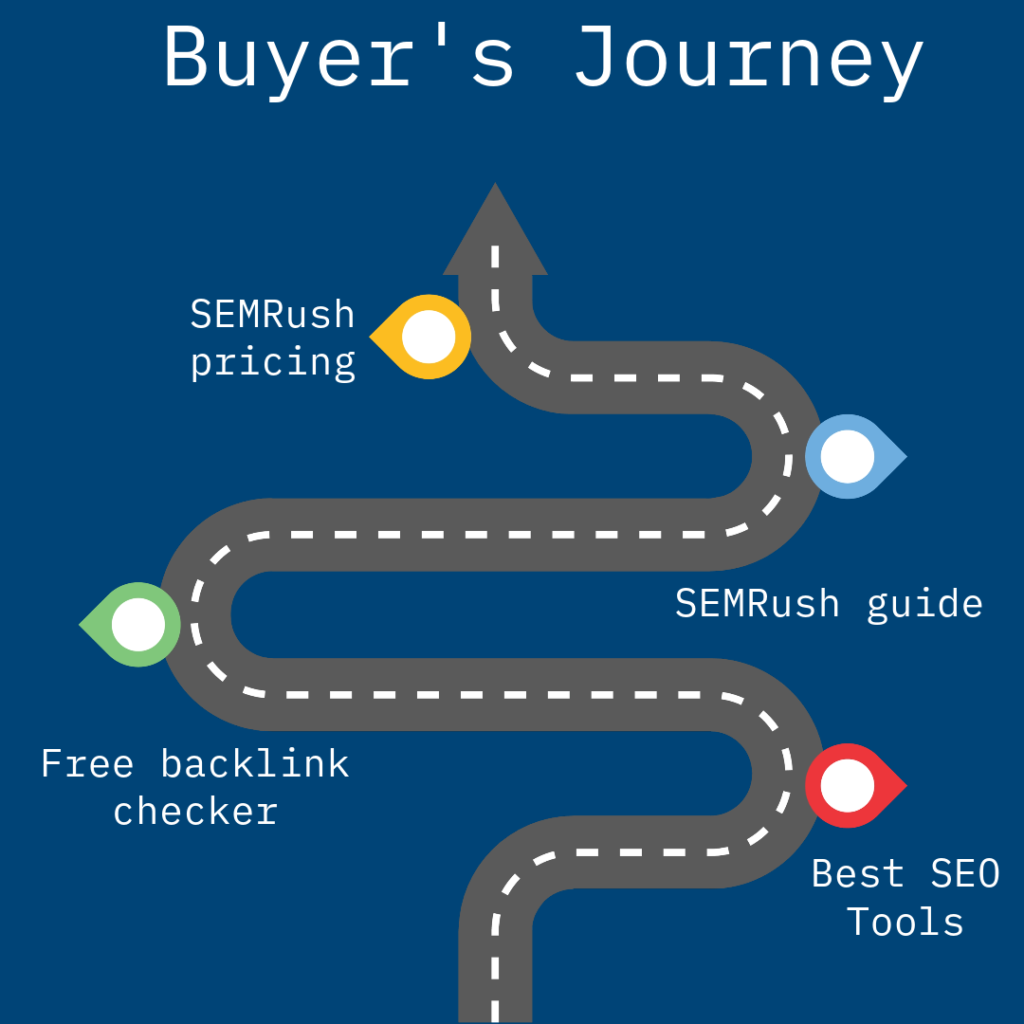If content is the building block of SEO, then keywords are the center of gravity of those blocks. If you take it lightly, you’re not going to succeed on SERPs.
Most non-SEO founders think SEO is about content targeting high search volume keywords. A big mistake, especially if you’re just starting out.
By the end of this issue, you will be able to:
- Understand search volume is a wrong metric
- Identify business potential
- Focus on the right keyword metric
The worst part of high search volume keywords is that the clarity of the search intent is miles away. The broader the keywords, the less useful it is. Even in terms of conversions, high-search volume keywords perform the worst. Logically speaking, why rank and chase such keywords in the first place?
By ranking for or chasing high search volume keywords, you’re killing your chances of attracting relevant traffic, fruitful activities, and losing revenue.
Focusing on the right keywords will give you the liberty to topically dominate your niche. Furthermore, with SGE becoming normal, old keyword research strategies won’t help you in any way.
As someone taking care of SEO, your job is to focus on conversions and not only on traffic, that too, irrelevant traffic. Keyword research should be paired with analysis to make the most out of SEO campaigns.

Step 1: Ignore search volumes the right way
Search volumes are rarely accurate, even those suggested by Google. You can use the search volume to gauge the demand for the keyword or the topic on the whole. However, picking keywords solely based on search volume is outright criminal 😅 and you will not be rewarded anything for that.
However, tools can tell you what the best keywords to focus on without wasting too much of your time. Use search volume as a proxy & dig deeper to find hidden gems that are actually fruitful in terms of conversions.
Step 2: Focus on the right metrics
The best thing cannot be measured, that’s why I call this phase analysis. No tool can tell you what your audience is looking for. You can use the tools to confirm your analysis by focusing on the right metrics.
There are factors like search intent and search engine features that you should consider while picking the keywords. I recently rejected working on a high search volume keyword, because the search engines feature will take care of satisfying the search intent.
For example, if you search for “speed test” on Google will result in a tool where the users can test their internet speed, right on the SERP.

If you go by the search volume, this keyword is searched for nearly 1.1 million times a month just in the US alone. It’s impossible to get traffic for this keyword, no matter how much you optimize. However, optimizing for the keyword “website for speed test” can bring thousands of visitors to your site.
Step 3: Rank for relevant keywords
High search volume keywords are highly irrelevant. The best keyword for your startup is those that are relevant and has business potential. Each keyword should be mapped to the stage, the customer is in their buyer’s journey. The rule of thumb is, that the earlier they are in their journey, the less likely they are to buy.
This tells me if they’re least likely to buy, why pick that keyword when I don’t have content optimized for earlier stages of their journey?

Today’s action steps →
- Login to Google Search Console
- Filter last 6 months data & analyze keywords
- Check the impressions data and cross-check it with the search volume
- Understand if the keywords you’re ranking for are relevant or not
- Use these methods to find keywords from your competitors
SEO this week
- Google added more clarification on Why Discover traffic may change over time
- Google released an October 2023 spam update
- The impressive Dall-E 3 is now available in Bing Chat
- Ranking updates, structured data, and more – Google search central
- Google confirms fixing the indexing bug
Masters of SEO
- Glen Allsopp analyzed 250k keywords to define the state of content
- How to survive the helpfulness-focused algorithm updates?
- What happens when you merge SEO with UX?
- E-commerce SEO: Optimizing for product-first results
- Link-building outreach for beginners
How can I help you?
I put a lot of effort into coming up with a single edition of this newsletter. I want to help you in every possible way. But I can do only so much by myself. I want you to tell me what you need help with. You can get in touch with me on LinkedIn, Twitter, or email to share your thoughts & questions that you want to be addressed. I’d be more than happy to help.
Whenever you’re ready to dominate SERPs, here’s how I can help:
- Sit with you 1-on-1 & create a content marketing strategy for your startup. Hire me for consulting
- Write blogs, social posts, and emails for you. Get in touch here with queries (Please mention you found this email in the newsletter to get noticed quickly)
- Join my tribe on Twitter & LinkedIn where I share SEO tips (every single day) & teaser of the next issue of Letters ByDavey

